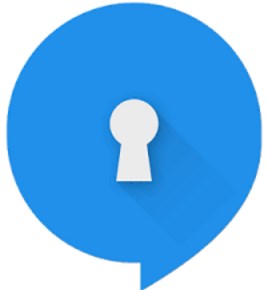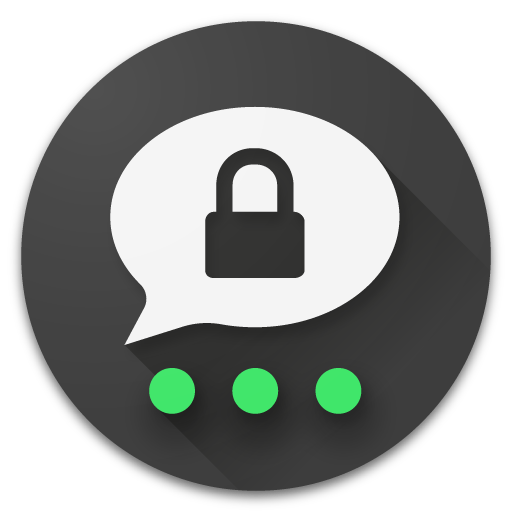With more than 2 billion users in 180 countries, WhatsApp is the world’s favorite messaging app.
Facebook’s acquisition of WhatsApp in 2014 left privacy experts and security-conscious users concerned. After all, Facebook and its 3rd party apps were involved in multiple security breaches, resulting in thousands of users’ private information being leaked. However, WhatsApp have always insisted that they are a separate app, dedicated to creating and maintaining a secure messaging service.
That’s about to change. Facebook recently announced that they’re considering merging three separate messaging platforms. They plan to combine Facebook Messenger, WhatsApp, and Instagram‘s message functions, allowing users to message each other between the three networks.
A source confirmed that current plans would include rolling out end-to-end encryption across all three platforms. This would – in theory – make Facebook Messenger and Instagram as secure as WhatsApp. However, this could also make WhatsApp much less secure, bringing it in line with the other platforms’ standards.
WhatsApp’s Security Loopholes
 WhatsApp promises end-to-end encryption – a great security feature. However, there are several loopholes that the company needs to address.
WhatsApp promises end-to-end encryption – a great security feature. However, there are several loopholes that the company needs to address.
Its legal disclaimer states, “As part of the Facebook family of companies, WhatsApp receives information from, and shares information with, this family of companies. We may use the information we receive from them, and they may use the information we share with them, to help operate, provide, improve, understand, customize, support, and market our Services and their offerings.”
“Facebook and the other companies in the Facebook family also may use information from us to improve your experiences within their services such as making product suggestions.”
“We do not retain our users’ messages in the ordinary course of providing our Services. We do, however, host our users’ account information, including our users’ profile picture, profile name, or status message, if they decide to include them as part of their account information.”
In short, this means that while your messages are probably secure, WhatsApp stores user data on private servers. The company can use this information for marketing purposes.
What’s more, the data stored on their servers can be given to the government in case of an “out-of-ordinary” event. Hackers can also break into WhatsApp servers and gain access to the phone numbers and account details of users.
The 5 Best Alternatives to WhatsApp – Those Apps Will Maintain Your Privacy And Keep You Secure
1. Signal
Signal is free, has strong encryption, and works on all mobile platforms. Like most other messaging apps, Signal is really simple to use. It also offers voice and video calling, so you won’t miss WhatsApp.
Signal includes desktop installation files so you can use the app on your computer as well as your cell phone.
Every message is encrypted, so only the sender and receiver can read them. Messages are completely unreadable to hackers. Signal uses open-source encryption, which allows experts to test it and find bugs. This makes the app even more secure.
Users can choose to let messages disappear by setting a time interval for automatic deletion. This guarantees privacy, even if someone else has the access to your phone.
Signal doesn’t have animated emojis. However, you can import your device’s emojis into the app.
Pros
- End-to-end encryption
- Open source encryption
- Available on all major platforms
- Disappearing messages
Cons
- No animated emojis
Ranking: 4.8/5
2. Threema
Threema promises complete privacy. Your contact lists and group information are stored solely on your phone, not in the app. Messages are deleted as soon as they’ve been delivered. Additionally, you can connect to people using an 8-digit Threema ID instead of a phone number, further protecting your privacy. You can verify contacts with unique QR codes.
Threema provides end-to-end encryption for all message types, including texts, voice calls, shared files, and group chats. It even encrypts your status messages so no-one can keep track of what you post. Messages can be read only by the sender and the intended recipient.
You can securely use Threema in-browser. Like WhatsApp, the app offers formatting features, as well as sending locations and files. Unlike WhatsApp, users can create polls and leave “like” feedback on individual messages. You can even hide particular chats and password-protect them.
Threema is based in Switzerland, which is known for its pro-privacy laws.
Pros
- No need for phone number
- Contacts can be verified with QR codes
- Text formatting features
- Password protect your chats
Cons
- Paid app
Ranking: 4.6/5
3. Telegram
With more than 200 million active users, Telegram is a popular alternative to WhatsApp. The cloud-based app works across multiple platforms. Similar to WhatsApp, it uses a double-tick system to see when someone received a message.
The app features default end-to-end encryption for voice calls, ensuring that no-one can ever listen in on your calls. However, encryption for messages needs to be manually turned on to prevent storage.
Like Signal, Telegram offers the ability to automatically delete a message after a certain time. It also supports multimedia file sharing.
Pros:
- Open-source software
- User-friendly platform
- Cloud-based so you never lose your material
Cons:
- Encryption is not by default and needs to be manually turned on
- Created own standard encryption, which has been criticized
Ranking: 4.5/5
4. Wire
Protected by European data retention laws, Wire is a secure messaging app with end-to-end encryption. It offers free personal accounts and paid business plans with additional support and features. Wire boasts clear voice and video communications.
Wire offers 1:1 and group screen sharing. It also supports multimedia file sharing and audio filtering. Available for all major platforms, you can log in your account from eight synced devices.
You can format text with bold and italics, and create lists within chats. You’ll also be able to optimize file sizes for easy sharing, and set timers to delete messages for added privacy.
Pros
- Secure chats
- Timed messages
- Ability to use 8 devices simultaneously
- Rich conversations
Cons
- Paid app
Ranking: 4.4/5
5. Riot.IM
It supports VoIP and video calling, as well as end-to-end encryption for messages. Every user receives a unique ID; this ID is used instead of a phone number, helping protect your anonymity.
Riot works on open-source software. While it has its own bots, developers are welcome to create their own. This lets users interact with the software, making it more versatile and secure. Its open source features make Riot more suited for developer teams than corporate groups.
Riot has conversation rooms and users can visit any public chat room. It also offers private rooms you can visit with a link.
In addition, the desktop client has a clean and friendly interface and the app is available in seven languages. It also lets you connect to other applications.
Pros
- User IDs instead of phone numbers
- Open-source software
- Clean desktop client
- Available in seven languages
Cons
- Encryption is not enabled by default and needs to be manually switched on
Ranking: 4.2/5
If you want to ensure your private messages stay private, you might want to ditch WhatsApp and find an alternative. The apps suggested above are known for their strong encryption.
Looking for more privacy solutions? Check out how to protect your privacy on your iPhone, or learn about how to survive online without Google.
















